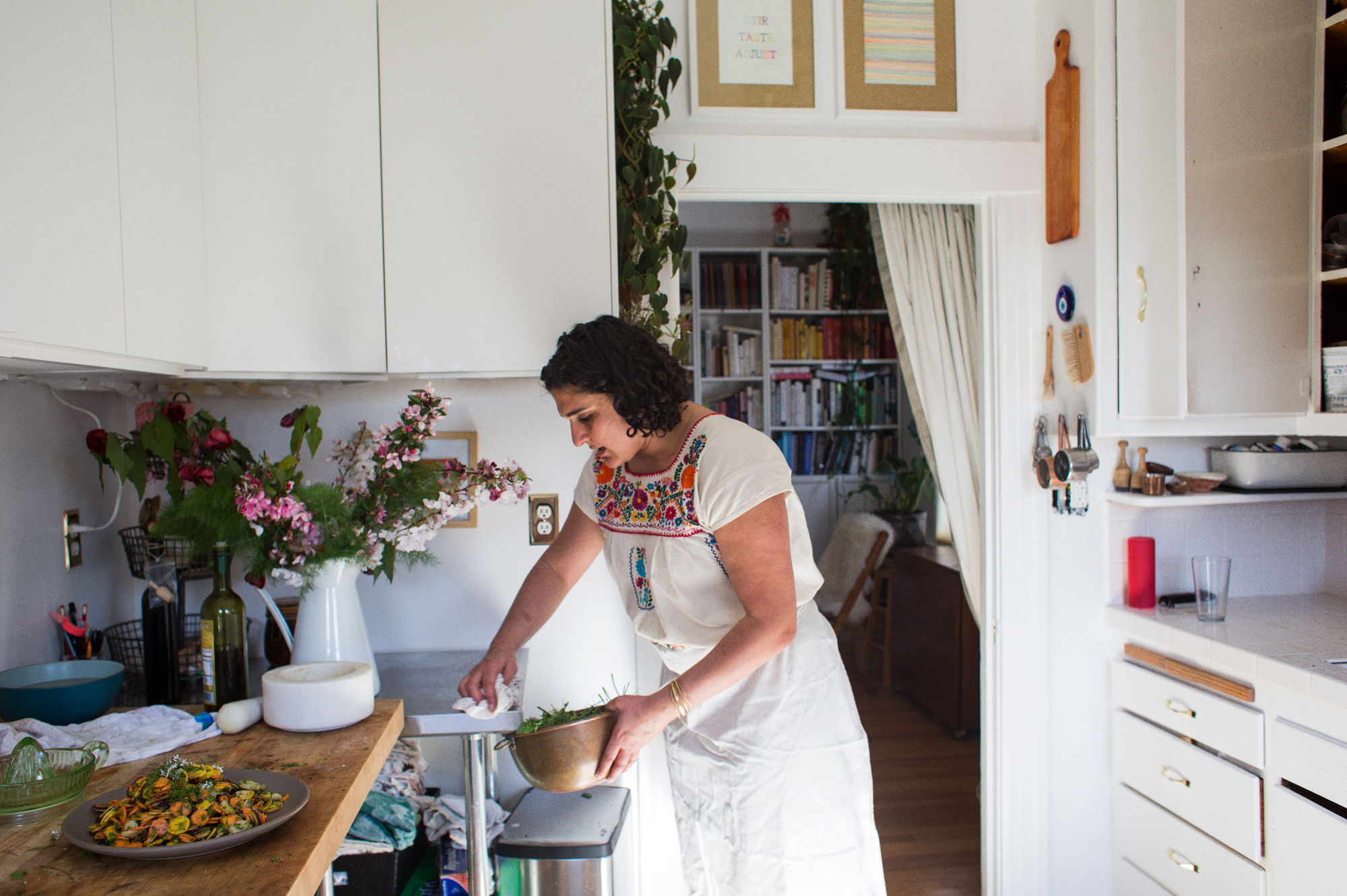Samin Nosrat wants to become the “Iranian-American Martha Stewart.” She is one step closer to that dream with her best-selling cookbook “Salt Fat Acid Heat” now transformed into a Netflix documentary.
The Netflix special follows Nosrat around the world as she demonstrates how the four basic cooking elements work within the local cuisine.
Or as the documentary’s tagline goes: “Master these four elements, master the kitchen.”
Samin Nosrat Never Expected to Be Her Generation’s Julia Child
Nosrat was born in San Diego, to parents who had left Iran in the mid 1970s. Growing up she did not learn to cook, though she enjoyed Persian cuisine. She attended Berkeley as an undergraduate with dreams of law school or medical school.
But a single taste of incredible food changed her mind. After taking her last final one semester, she treated herself to an expensive restaurant, Chez Panisse. The meal would change her life.
Transformed by the dining experience, she decided to get a job at that very restaurant. She started as a busser clearing tables. She then worked her way from server into the kitchen, learning from master chef Alice Waters.
“It was just a very sweet sort of entry into the beginning of my culinary education,” Nosrat remembers.
For Nosrat, Cooking is All About the Basics
In each of the Netflix documentary’s four parts, Nosrat travels to a different location: Italy, Japan, Mexico, and California. In each spot, she demonstrates the importance of one of her four elements of cooking.
“You have to taste what you’re about to cook with – you have to look at, smell it, touch it,” she observes. This epitomizes the philosophy behind her culinary success.
By understanding the essentials of food creation and seeking out the highest quality ingredients, Nosrat transforms basic elements into a mouth-watering array of dishes.
For Nosrat, this approach to cooking began in her childhood. “Iranian food and palates are skewed toward sour things and acidic things in ways that other palates are often skewed toward sweet things,” she explains.
The trick, she would later discover, comes down to balance.
“It’s all about getting that nice tangy balance in a meal or in a bite of a dish,” she notes. “This message is about teaching you to be loose in the kitchen. And I didn’t want you to feel bound to sort of my one image of a perfect dish in a perfect moment, and feel like that was what you had to make.”
Just as her mother taught her to find the perfect balance, Nosrat believes anyone can leverage the building blocks of salt, fat, acid and heat to craft their own culinary identity.
Samin Nosrat’s Philosophy Holds up Beyond the Kitchen
Balance for Nosrat extends beyond a dish to life in general.
Growing up as the child of immigrants was not easy. Nosrat often struggled to find the right role to play at the right time.
“I was code-switching at an early age,” she recalls, thinking of the times she held back her effusive personality. In one moment she would let her personality shine, brazen and enthusiastic, while the next “quietly decide it’s not worth correcting someone’s pronunciation of my name.”
She remembers a moment that solidified her feeling of belonging in the world of cooking. In a meeting with publishers in New York pitching her cookbook, she noticed that everyone in the room had pronounced her name correctly.
“Before I got there, they all went to the trouble of asking someone how to pronounce it,” Nosrat beams. “It was a significant moment for me. I mean, part of me was like, ‘why the hell wouldn’t they ask?’ But part of me also just felt really, really good.”



